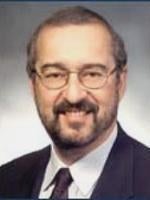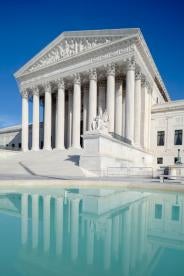With respect to the two related questions before the Supreme Court of the United States, the court held that (1) the prior standard used by the U.S. Court of Appeals for the Federal Circuit for determining whether a case is “exceptional” pursuant to 35 U.S.C. § 285 was unduly restrictive and inconsistent with the statutory text, and (2) a district court’s finding of an “exceptional case” is subject to the district court’s discretion and should be reviewed for an abuse of discretion, not de novo.
In two decisions authored by Justice Sotomayor issued on the same day, a unanimous* Supreme Court of the United States reversed two opinions of the U.S. Court of Appeals for the Federal Circuit relating to (1) a district court’s ability to award fees to a prevailing party in patent litigation for an “exceptional case,” and (2) the standard of review to be applied by the Federal Circuit in reviewing a district court’s opinion on whether a case is “exceptional.”
In the first of the two cases, Octane Fitness, LLC v. ICON Health & Fitness, Inc., Case No. 12–1184 (Supr. Ct. Apr. 29, 2014), the Supreme Court construed the text of 35 U.S.C. § 285 and rejected the prevailing framework for evaluating whether a case is “exceptional” under § 285 as unduly restrictive. The court held that, in accordance with its ordinary meaning, an “exceptional” case is simply one that “stands out from others with respect to the substantive strength of a party’s litigating position … or the unreasonable manner in which the case was litigated,” to be determined at the district court’s discretion under the totality of the circumstances based on a preponderance of the evidence.
In the companion case, Highmark, Inc. v. Allcare Health Management System, Inc., Case No. 12-1163 (Supr. Ct. Apr. 29, 2014), the Supreme Court held that in view of its ruling in Octane Fitness, a district court’s finding of an “exceptional case” should be reviewed for an abuse of discretion, not de novo.
Octane Fitness, LLC v. ICON Health & Fitness, Inc.
In Octane Fitness, the respondent, ICON, owned a patent relating to elliptical exercise equipment. ICON sued its competitor, Octane, claiming that Octane’s elliptical machines infringed claims of the asserted patent. The district court granted Octane Fitness’s motion for summary judgment that its products did not infringe ICON’s patent claims. Octane then moved for attorneys’ fees under § 285. The district court applied the Brooks Furniture standard for determining whether the case was “exceptional.”
In Brooks Furniture, the Federal Circuit held that a case may be deemed “exceptional” under § 285 only in two limited circumstances: (1) when there has been some material, inappropriate conduct, or (2) when the litigation is both brought in subjective bad faith and is objectively baseless. The district court found that Octane could show neither that ICON’s claim was objectively baseless nor that ICON had brought it in subjective bad faith. Rather the district court found that ICON’s unsuccessful claims were neither “frivolous” nor “objectively baseless” and found no subjective bad faith on ICON’s part. On appeal, the Federal Circuit rejected Octane’s argument that the district court had “applied an overly restrictive standard in refusing to find the case exceptional under §285”and declined to “revisit the settled [Brooks Furniture] standard for exceptionality.” The Supreme Court granted certiorari to review the Brooks Furniture standard (IP Update, Vol. 16, No. 10).
In reviewing the history of § 285, the Supreme Court explained that prior to 1946, the Patent Act did not authorize the awarding of attorneys’ fees to the prevailing party in patent litigation. Under the so-called “American Rule,” each litigant paid for their own attorneys’ fees whether they won or lost the case. In 1946, Congress added a fee-shifting provision to the Patent Act, which provided that a court “may in its discretion award reasonable attorney’s fees to the prevailing party upon the entry of judgment in any patent case.” Still later, as part of the Patent Act of 1952, the provision in the 1948 Act was amended and re-codified as § 285, still in effect today: “The court inexceptional cases may award reasonable attorney fees to the prevailing party” (emphasis added).
As Justice Sotomayor explained, the addition of the word “exceptional” was not intended to change the scope of the 1946 amendment. The Supreme Court found that the text of the 1952 statute was “patently clear,” and stated that the only constraint on a district court’s discretion to award attorneys’ fees in patent litigation is that the power is reserved for “exceptional” cases. Because the Patent Act does not define “exceptional,” the Supreme Court assigned the term its ordinary meaning, looking to dictionaries and analogous statutes, and concluded that an “exceptional” case is “simply one that stands out from others with respect to the substantive strength of a party’s litigating position (considering both the governing law and the facts of the case) or the unreasonable manner in which the case was litigated.” The court also concluded that district courts may determine whether a case is “exceptional” in a case-by-case exercise of their discretion considering the totality of the circumstances.
The Supreme Court rejected the litigation misconduct portion of the Brooks Furniture standard as too restrictive because it appeared to apply only to independently sanctionable conduct. The court explained that “sanctionable conduct” is not the appropriate benchmark. Rather, a district court may award fees in the rare case in which a party’s unreasonable conduct is “exceptional” enough to justify an award of fees even if the conduct is not sanctionable. The Supreme Court also found that the second prong of the Brooks Furniturestandard, requiring a finding that the litigation was objectively baseless and that the claims were brought in subjective bad faith, to be unduly restrictive. The court found that a case presenting either subjective bad faith or “exceptionally meritless claims” may suffice for a finding of an exceptional case.
The Supreme Court concluded that “Section 285 demands a simple discretionary inquiry; it imposes no specific evidentiary burden, much less such a high one.” In an aspect of the ruling that many will find as key, the court stated that the proof of an exceptional case is to be judged under the preponderance of the evidence standard, thereby exposing the parties to “share the risk of error in roughly equal fashion.”
Highmark, Inc. v. Allcare Health Management System, Inc.
The Federal Circuit’s “exceptional case” rulings in Highmark, Inc. v. Allcare Health Mgmt. Sys., Inc. are multifaceted and were the subject of sharp intra-panel divisions in connection with consideration of en banc review. However, the issue presented on appeal to the Supreme Court was a relatively simple one: What is the appropriate standard of review for a determination regarding exceptional case by the district court? The Supreme Court concluded that its finding in Octane settled theHighmark case. Because § 285 commits the determination of whether a case is “exceptional” to the discretion of the district court, that decision is to be reviewed on appeal for abuse of discretion.
Justice Sotomayor explained that, traditionally, decisions based on “questions of law” are “reviewable de novo;” decisions based on “questions of fact” are “reviewable for clear error;” and decisions based on “matters of discretion” are “reviewable for ‘abuse of discretion’.” The court explained that the text of the statute “emphasizes the fact that the determination is for the district court,” which “suggests some deference to the district court upon appeal.” The Supreme Court explained that the district court “is better positioned” to decide whether a case is exceptional because it lives with the case over a prolonged period of time, and that the question of exceptionality is “multifarious and novel,” not susceptible to “useful generalization” of the sort that de novo review provides, and “likely to profit from the experience that an abuse-of-discretion rule will permit to develop.”
*Justice Scalia joined in the Octane Fitness opinion except as to footnotes 1–3.




 i
i


